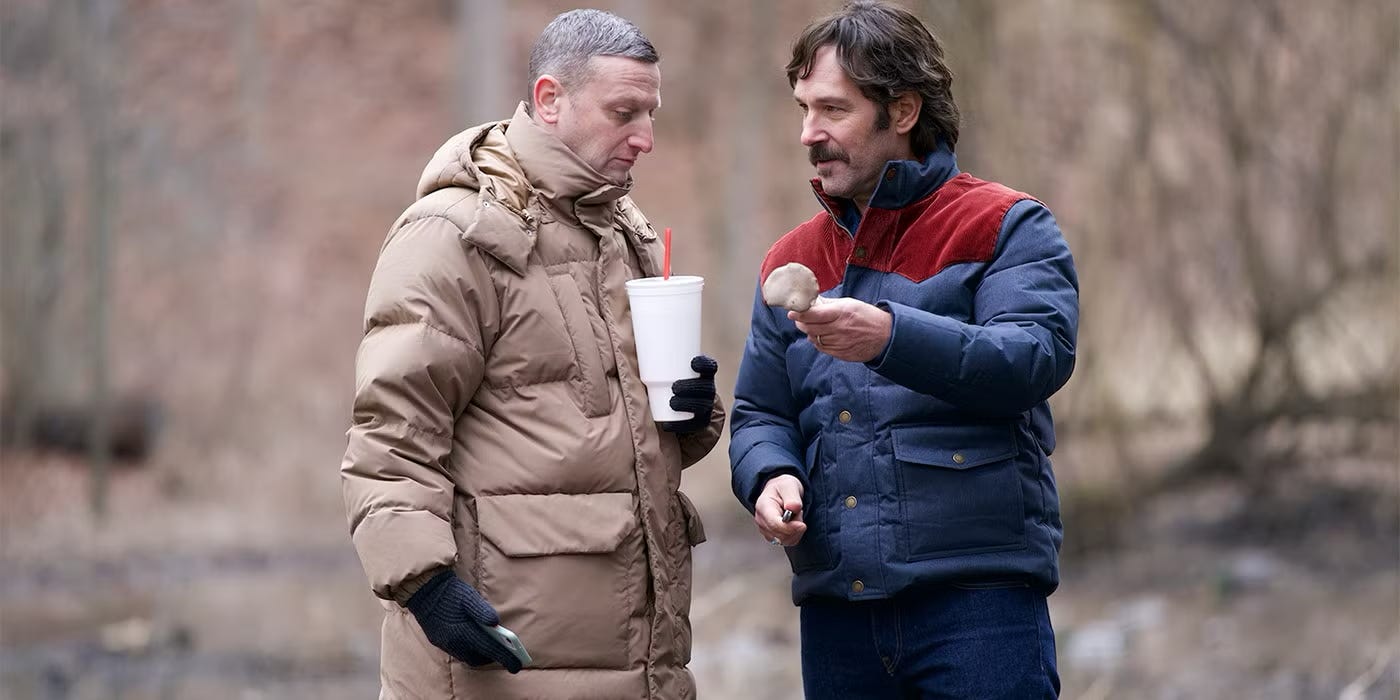Opening May 23: “Friendship” Is a Cringey Bromance You Can’t Look Away From
One of the smartest dumb comedies in years
Here’s a film made by people whose primary goal is to make the audience laugh as much as possible. “Friendship” may be the first film Tim Robinson has starred in, but the comedian is nothing short of an expert in using himself as a punchline. Those familiar with his work on television know exactly what I mean, but for the uninitiated, imagine the awkwardness of Michael Scott mixed with Adam Sandler’s tendency for violent outbursts.
If Robinson sounds insufferable, it’s all by design. His comedic persona would’ve killed his career had he not known how to frame himself as the joke that keeps on giving. The character he plays in “Friendship,” Craig Waterman, is the type that he’s portrayed many times in his sketch comedy show “I Think You Should Leave” – the fool who is ignorant of his own foolishness. Craig is a cocky, privileged ass without an ounce of self-reflection. His wit peaked in middle school, then 20 years passed. Every loud word out of his mouth is the wrong one.
That he has a job and family feels impossible, but the same can be said for many fools. All that is missing from his life is a friend, and one comes in the form of a cool new neighbor named Austin Carmichael, played by Paul Rudd. He’s a meteorologist, he’s in a band, and, well, he’s as handsome as Paul Rudd. One night he invites Craig over and they hit it off. Robinson beams at him like a schoolboy bragging about his older brother who smokes cigarettes. It’s no surprise that the film paints Craig in a pathetic light, but more subtly does writer and director Andrew DeYoung suggest similar insecurities in Austin.
Soon enough Austin grows tired of his neighbor, but by then it’s too late; Craig has been welcomed in and plans to stay, even if it means both of their lives unraveling. He begins shirking work. He shows up at Austin’s news station. He breaks in to his house. Craig attempts to replace the hole left by Austin through coworkers and strangers, but everyone else knows better than to get involved. The chaos snowballs in a quiet way that approaches the uneasy tension of a thriller, a welcome change of pace for similar types of movies that just use a simple plot to hang gags on.
Robinson’s role is persistent, but the film avoids playing one note for too long by giving us a supporting cast that take turns icing Craig out. Kate Mara plays his wife in a role so straight that it feels like another joke; how did someone like this convince a poor woman to stay with him? Their teenage son Steven (Jack Dylan Grazer) is only seen in passing, but from what we hear we learn that the apple doesn’t fall far from the tree. DeYoung’s script wisely drops clues that explain how Craig even made it this far without spelling it out for the viewer.
There’s a rhythm to many of the jokes in “Friendship” that positions it as one of the most intelligent dumb comedies I’ve seen in years. Craig does something inappropriate, and we laugh. Then DeYoung lingers on the uncomfortable silence by the characters caught in his wake – we laugh even harder. But then DeYoung draws attention back to Robinson, who escalates his behavior even further until it becomes uncomfortable. What was once funny dips into sadness, but we laugh again in an attempt to disarm the situation. Now the joke is on all of us watching.
It’s astonishing that Robinson is able to find the perfect balance for this type of humor. Even a glance by him will be misplaced enough to makes us laugh. Imagine the precision it must take to play a cringe-inducing character but not be unbearable to your audience. Part of why it works so well is that Robinson never punches down at an easy target. Even by the end of the film Craig still just does not get it. We’ve all met someone like this, though I suspect women encounter this type much more than men.
“Friendship” opens in theaters Friday, May 23.




